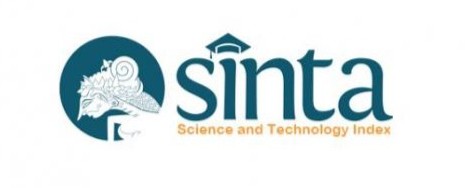PENGGUNAAN NAMA BARAT OLEH ETNIS TIONGHOA DI SURABAYA
Downloads
Abstract
The usage of Western names among ethnic Chinese in Surabaya has become a trend nowadays. In the euforia of freedom in expressing Chinese culture in this reformation era, ethnic Chinese in fact are not returning to their Chinese names formally. This study tries to reveal how is the usage of Western names by ethnic Chinese in Surabaya, and what are the factors behind it. Using quantitave approach on the names of 317 participants of HSK test in Surabaya who were born in 2000 or above, and qualitative approach on questionnaire answers of 13 respondents, it shows that the usage of Western names does more and more welcomed, and there are still many who use mixture of Western and Indonesian names. This kind of bricolage implies that ethnic Chinese are still anxious or traumatic with New Order regime, shown with the ‘resistance' in forming a new
identity that looks different with ethnic Chinese of the old times, and with other local ethnic.
Longhurst, B., Smith, G., Bagnall, G., Crawford, G., & Ogborn, M. (2008). Introducing
Cultural Studies: Second Edition. Harlow: Pearson Education Limited.
Mingzi. (n.d.). Retrieved 1 16, 2012, from Baidu Baike: http://baike.baidu.com/view/20683.htm
Qiming. (n.d.). Retrieved 1 16, 2012, from Baidu Baike:
http://baike.baidu.com/view/53934.htm
Suryadinata, L. (2010). Etnis Tionghoa dan Nasionalisme Indonesia. Penerbit Buku Kompas: Jakarta.
Sutanto, I. (2004). Ganti Nama di Kalangan Keturunan Tionghoa: Peraturan dan Kebebasan. Jakarta: Fakultas Ilmu Pengetahuan Budaya Universitas Indonesia.
Tan, M. G. (1997). The Ethnic Chinese in Indonesia: Issues of Identity. In L. Suryadinata, Ethnic Chinese as Southeast Asians (pp. 33-65). Singapore: Institute of Southeast
Asian Studies.

LAKON by Unair is licensed under a Creative Commons Attribution-NonCommercial-ShareAlike 4.0 International License.
1. The journal allows the author to hold the copyright of the article without restrictions.
2. The journal allows the author(s) to retain publishing rights without restrictions
3. The legal formal aspect of journal publication accessibility refers to Creative Commons Attribution-NonCommercial-ShareAlike (CC BY-NC-SA).


.png)













